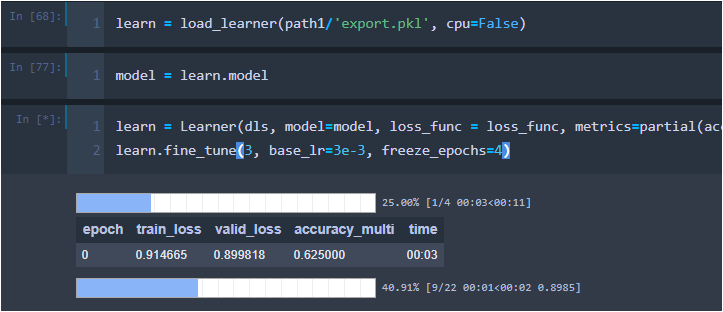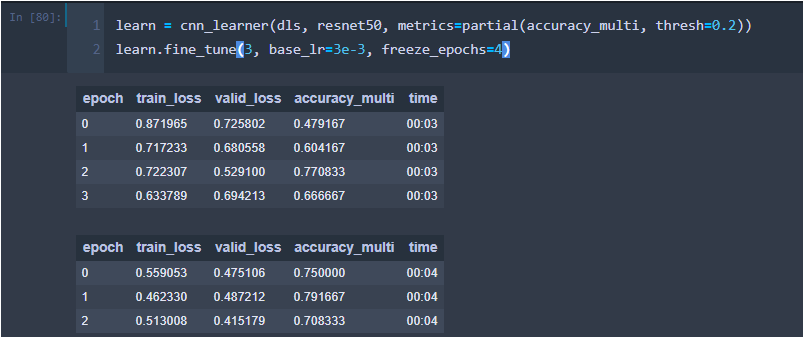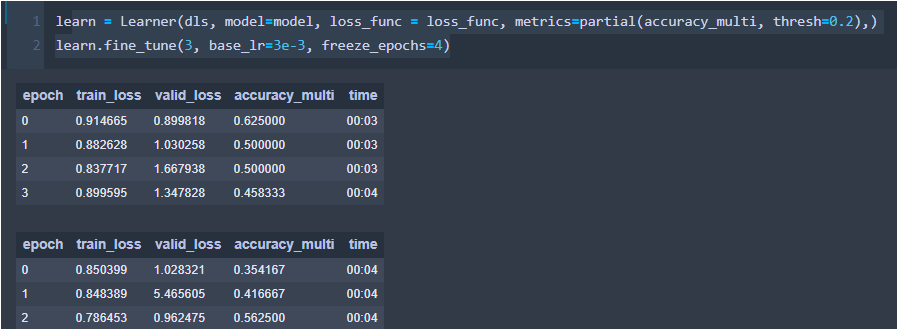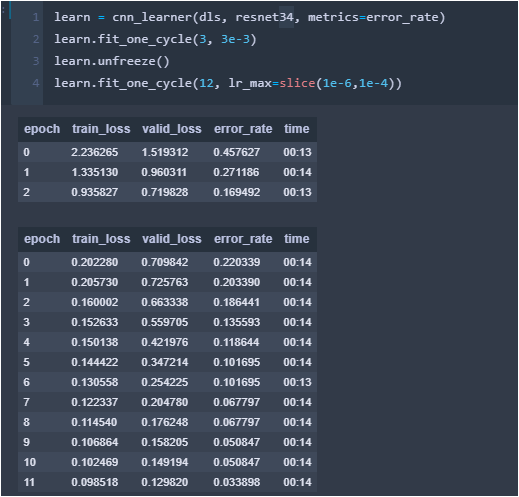I exported successully one of my model trained with
Resnet34 for 4 Categories images Resize to 224
Now, I would like to start the training of the Multicategory from my previous model, mentioned above.
I loaded in this way and then
learn = load_learner(path/'export.pkl')
I ran this
x,y = dls.train.one_batch()
activs = learn.model(x)
activs.shape
And I got
RuntimeError: Input type (torch.cuda.FloatTensor) and weight type (torch.FloatTensor) should be the same
RuntimeError Traceback (most recent call last)
<ipython-input-19-7b26555ca519> in <module>
1 x,y = dls.train.one_batch()
----> 2 activs = learn.model(x)
3 activs.shape
/opt/conda/envs/fastai/lib/python3.7/site-packages/torch/nn/modules/module.py in __call__(self, *input, **kwargs)
530 result = self._slow_forward(*input, **kwargs)
531 else:
--> 532 result = self.forward(*input, **kwargs)
533 for hook in self._forward_hooks.values():
534 hook_result = hook(self, input, result)
/opt/conda/envs/fastai/lib/python3.7/site-packages/torch/nn/modules/container.py in forward(self, input)
98 def forward(self, input):
99 for module in self:
--> 100 input = module(input)
101 return input
102
/opt/conda/envs/fastai/lib/python3.7/site-packages/torch/nn/modules/module.py in __call__(self, *input, **kwargs)
530 result = self._slow_forward(*input, **kwargs)
531 else:
--> 532 result = self.forward(*input, **kwargs)
533 for hook in self._forward_hooks.values():
534 hook_result = hook(self, input, result)
/opt/conda/envs/fastai/lib/python3.7/site-packages/torch/nn/modules/container.py in forward(self, input)
98 def forward(self, input):
99 for module in self:
--> 100 input = module(input)
101 return input
102
/opt/conda/envs/fastai/lib/python3.7/site-packages/torch/nn/modules/module.py in __call__(self, *input, **kwargs)
530 result = self._slow_forward(*input, **kwargs)
531 else:
--> 532 result = self.forward(*input, **kwargs)
533 for hook in self._forward_hooks.values():
534 hook_result = hook(self, input, result)
/opt/conda/envs/fastai/lib/python3.7/site-packages/torch/nn/modules/conv.py in forward(self, input)
343
344 def forward(self, input):
--> 345 return self.conv2d_forward(input, self.weight)
346
347 class Conv3d(_ConvNd):
/opt/conda/envs/fastai/lib/python3.7/site-packages/torch/nn/modules/conv.py in conv2d_forward(self, input, weight)
340 _pair(0), self.dilation, self.groups)
341 return F.conv2d(input, weight, self.bias, self.stride,
--> 342 self.padding, self.dilation, self.groups)
343
344 def forward(self, input):
RuntimeError: Input type (torch.cuda.FloatTensor) and weight type (torch.FloatTensor) should be the same
From my understanding it seems that the model that I am importing is ready for the CPU, but I am training on the GPU, so I can I integrate the two
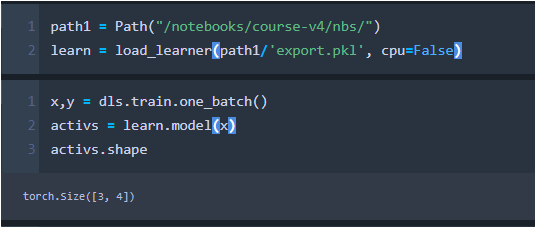
 you should make a Learner instead and make sure to pass in the loss function
you should make a Learner instead and make sure to pass in the loss function
